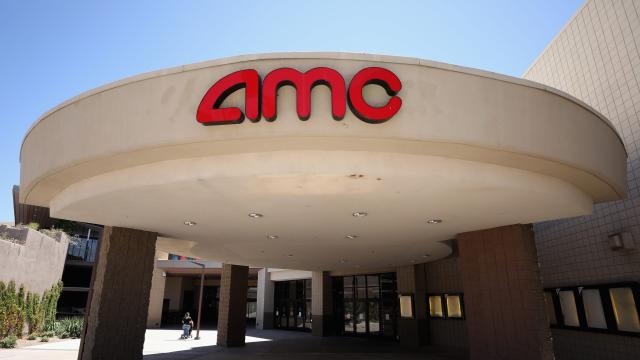Earlier this year — roughly 100 years ago now — you’ll recall that AMC had a very public, very messy falling out with NBCUniversal over distribution rights that saw the movie theatre chain swear off Universal Pictures films in its theatres globally, ostensibly forever. In a somewhat surprising turn, it appears the two parties have made nice — though the terms of their new agreement do signal a pretty radical shift in the movie distribution model.
First, a very brief recap: Covid-19 has put movie theatres in a very tight spot as they attempt to navigate not only closures and new safety measures but also delays in movie production and release schedules. Thanks in part to the fact that the parent companies of many major studios now own their own premium streaming services, studios have been testing the waters of straight-to-VOD for big-budget titles like, in the instance of Universal Pictures, the stupidly successful Trolls World Tour digital release.
As studios indicated either explicitly or more indirectly that they were exploring their options for alternative release avenues during the pandemic, movie theatres made their position clear: You are either with us, or you’re against us. This was bad news for theatres, of course, but also bad news for moviegoers if and when cinemas did eventually reopen.
Now, it appears the standoff has ended, with Universal and AMC on Tuesday announcing a new distribution agreement. In the past, 90-day theatrical windows were the standard. Per the terms of the multi-year deal announced this week, however, Universal will grant AMC theatrical exclusivity for a period of “at least three weekends,” or 17 days, before it has the option to make its films available on premium video on demand platforms, the companies said in a joint press release. For its part, AMC appears to be framing this as a kind of long-game investment in its own financial future.
“AMC enthusiastically embraces this new industry model both because we are participating in the entirety of the economics of the new structure, and because premium video on demand creates the added potential for increased movie studio profitability, which should in turn lead to the green-lighting of more theatrical movies,” AMC CEO Adam Aron said in a statement. “This multi-year agreement preserves exclusivity for theatrical viewing for at least the first three weekends of a film’s release, during which time a considerable majority of a movie’s theatrical box office revenue typically is generated. AMC will also share in these new revenue streams that will come to the movie ecosystem from premium video on demand.”
As for the economic future of the movie theatre industry? Aron certainly sounded a good deal more hopeful than the company did back in June, that’s for sure.
“Focusing on the long-term health of our industry, we would note that just as restaurants have thrived even though every home has a kitchen, AMC is highly confident that moviegoers will come to our theatres in huge numbers in a post-pandemic world,” Aron added in the statement. “As people enjoy getting out of their homes, we believe the mystical escape and magical communal experience offered at our theatres will always be a compelling draw, including as it does our big screens, big sound and big seats not to mention the alluring aroma of our perfectly prepared popcorn.”
Editor’s Note: Release dates within this article are based in the U.S., but will be updated with local Australian dates as soon as we know more.
